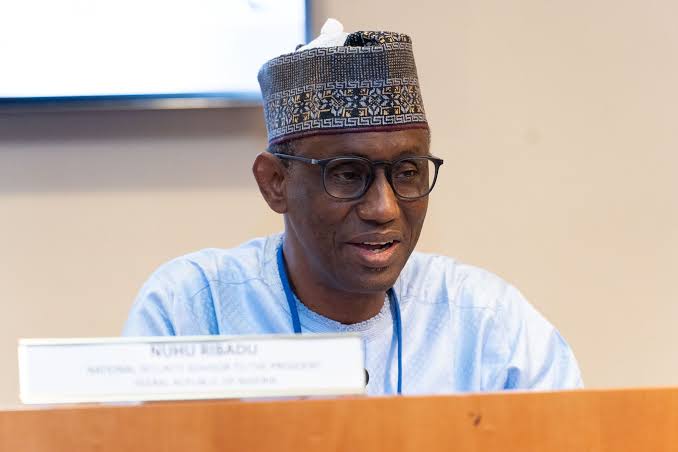When National Security Adviser Nuhu Ribadu stepped before cameras in Abuja this week, his message was confident, even defiant: “Your country is in good hands… We never know what failure is.” But behind the reassurances lies one of the most ambitious — and potentially risky — security experiments in Nigeria’s recent history: the creation of a National Forest Guard system.
Approved by President Bola Ahmed Tinubu on May 15, the programme is billed as a game-changer in the fight against spiralling insecurity. Each state will recruit 2,000 to 5,000 armed guards tasked with patrolling forests — Nigeria’s new frontlines against kidnappers, armed herders, insurgents, and drug cartels.

What Ribadu didn’t spell out is that 11 states already have “forest guard” units under different names — most underfunded, ill-equipped, and in some cases barely operational. Bringing them up to national standards will require billions in new spending, intensive training, and political will that past security initiatives have lacked.
A Battle for Nigeria’s Green Frontiers
The urgency is clear. Forest belts from Zamfara to Ondo have become sanctuaries for violent criminal gangs. Kidnap-for-ransom operations, banditry, and even terrorist regrouping often trace their origins to remote forest hideouts.
Ribadu’s announcement came as 46 new operational vehicles were handed over to key commands — a symbol of the administration’s push to match rhetoric with resources.
“This is leadership that will transform and better Nigeria,” Ribadu said. “Every single day in our work, something new happens… Maybe quietly and silently, but it is happening.”
But security analysts warn that unless the guards are properly armed, trained in intelligence gathering, and backed by judicial follow-through, they risk becoming another photo-op project.

The Drug–Security Nexus
The link between Nigeria’s forests and another underworld is impossible to ignore: drug trafficking.
At the same event, NDLEA boss Gen. Buba Marwa laid bare the statistics:
- 40,887 drug offenders arrested in two years, including 45 drug barons.
- 5.5 million kilograms of illicit substances seized.
- 704 hectares of cannabis farms — most hidden in forests — destroyed.
- 8,682 convictions secured.
Marwa’s warning was stark: “Kidnapping, armed robbery, insurgency and cult violence are all fuelled by illicit substances… Drug trafficking emboldens perpetrators, strips away moral restraint, and replaces hope with recklessness.”
The implication is clear — forest guards will not only be confronting armed criminals but also dismantling the logistics networks that sustain them.

Political Backing—and Political Risks
Attorney General Lateef Fagbemi acknowledged what security experts have long argued: drug cartels and violent crime are joined at the hip. His praise for Tinubu’s “understanding” hints at the political capital being invested in the forest guard rollout.
Yet, past efforts — from Civilian JTF in the North-East to Amotekun in the South-West — show how quickly such forces can become politicised, clash with regular police, or turn rogue.
If Tinubu’s forest guards succeed, they could become a model for decentralised, state-level security. If they fail, they risk deepening Nigeria’s security fragmentation.

The Test Ahead
For now, Ribadu insists the ship is steady: “Nigeria is handled very well and properly… You will see the result of the work we put in.”
But with thousands of recruits to train, states to coordinate, and criminal networks to dismantle, the forest guard project is less a quick fix than a long-haul gamble.
It will test not only the government’s capacity to fight crime in Nigeria’s vast and lawless green belts, but also whether Tinubu’s Renewed Hope agenda can translate into renewed safety for communities living on the edge.




